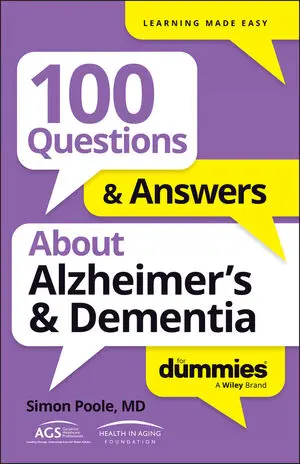When someone with dementia or Alzheimer’s disease is admitted to the hospital, you need to make sure the staff understands the person they’re looking after.
Doctors, nurses, and everyone else on the unit who comes into contact with patients will try to treat them as individuals and not according to their pathology — “the spleen in room 603.” Unfortunately, on a busy unit with frequent staff and patient changes over the course of the day, that ideal situation doesn’t always match reality.
A danger also exists that when staff members hear the word “dementia” they’ll jump to conclusions about the condition. This issue can be a particular problem on units where the staff aren’t used to treating people with dementia, such as surgical wards, rather than on those prepared for elderly care problems or mental health difficulties.
To avoid misunderstandings, give the staff as much information as you can about the patient, as early on in the admissions process as possible. Useful information includes
The fact that the person has dementia and which type: This may seem a bit obvious, but if admission has occurred via the emergency room, the staff may not have a full set of notes. An awareness of the type of dementia is also important to help try to predict particular difficulties the person may have. People deserve individual rather than standard, one-size-fits-all treatment.
The name the person likes to be called by: Staff often don’t know whether to be formal and go for “Mrs. Brown” or informal and use “Celia.” Some patients feel patronized by over-familiarity while others find being addressed by their title and surname impersonal and uncaring. Problems may also be caused if someone’s first name is “Richard” but he’s always been known as “Keith” (it happens). Unless the staff are told otherwise, they’ll use the name on the medical records.
Details of other illnesses: Tell the staff about other medical conditions such as arthritis or emphysema, their effects, and how best to minimize the symptoms. If a patient is in the hospital with pneumonia, the staff may not think to provide painkillers for arthritis in the patient’s knee unless told to do so.
An explanation of daily self-care routines: This covers those activities that need prompting and those the person will need help with. Activities include everything from brushing teeth to using the bathroom.
Any special dietary requirements or intolerances: Such details don’t simply cover the big things like an allergy to peanuts or being a lifelong vegan; it’s also helpful for the staff to know if someone can’t stand fish or hates raisins in cookies. Point out foods the person can’t chew or has trouble swallowing. Refusal to eat may otherwise be seen as a behavioral problem, or even lead to malnourishment while on the unit.
Social background: These details cover names of pets and important family members whom the person is especially close to; what sort of place he lives in; whom he lives with or whether he’s alone; and any recent dramatic life events, such as a bereavement. These facts not only help the staff put names to faces of visitors, but also help them understand if the person talks in the present tense about people and events from the past. Also let the staff know if your loved one is someone who likes his own company or whether the isolation he may feel while in hospital will have a negative impact.
Religious or cultural practices: Chaplains serving all faiths practice in hospitals, and arrangements can be made for a patient to be visited by clergy of choice.
A heads-up about outbursts: Let the staff know whether agitation can be settled or avoided by encouraging the person to be active and mobile around the unit with supervision. Also make them aware that the tendency to wander may be amplified when someone with dementia is in unfamiliar surroundings with unfamiliar people.
The best way to communicate. People with Alzheimer’s disease or dementia may need to be spoken to slowly and precisely, and the conversation should cover one important issue at a time.
Details of who has power of attorney, any advance directives, and the existence of a do not resuscitate order: Clearly, it will be very distressing for everyone concerned if a patient is resuscitated against his wishes. Make sure you provide up-to-date phone numbers so the staff can contact you in an emergency, as well as a backup family member if you can’t be reached.






